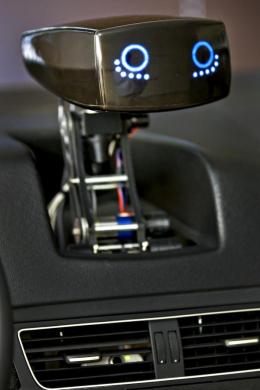
Robotic cars are no longer mere sci-fi fodder — they could also begin appearing on Nevada highways. After ongoing lobbying from Google, which began testing self-driving vehicles in 2010, Nevada passed legislation last June that required the Department of Motor Vehicles to establish a set of regulations for self-driving vehicles. And now, that hurdle has been cleared.
On Thursday, the DMV’s Legislative Commission approved the guidelines, the Associated Press reports. Though the vehicles aren’t expected to hit the market anytime soon, the regulations pave the way for companies with a serious interest in testing the necessary technology.
(MORE: Google Tests Self-Driving Car)
To get state approval, these firms will need to outline specific plans and goals, like what kind of roadways their cars will be traveling and whether they can withstand harsh environmental conditions. Companies will also need to secure a $1 million to $3 million bond, depending on how many vehicles they plan to test.
Autonomous vehicles in test mode must bear a red license plate, and if the technology is permitted past the test phase, a green one. This will identify them among standard Nevada plates, which are a bluish-gray color, PC Mag reports. The regulations also mandate that during testing, two passengers must be present. Cars must be equipped with data collectors — like a “black box” on a plane — to monitor activity at least 30 seconds before a collision.
Google’s prototype has reportedly traveled 160,000 miles autonomously without incident, and companies like Audi, GM and Volkswagen have also been developing autonomous or semi-autonomous vehicles. If companies do get the green light to release the robotic cars for public use, Nevada’s DMV will likely maintain the same set of guidelines established for testing.
But according to Bruce Breslow, director of the Nevada Department of Motor Vehicles, that’s still a long way down the road. Companies will have to build up their credibility, not to mention acquire millions of dollars to even begin testing. Still, Nevada is miles ahead of the technological curve: If the time comes to legally take these vehicles to the streets, the state has already cleared several roadblocks.

